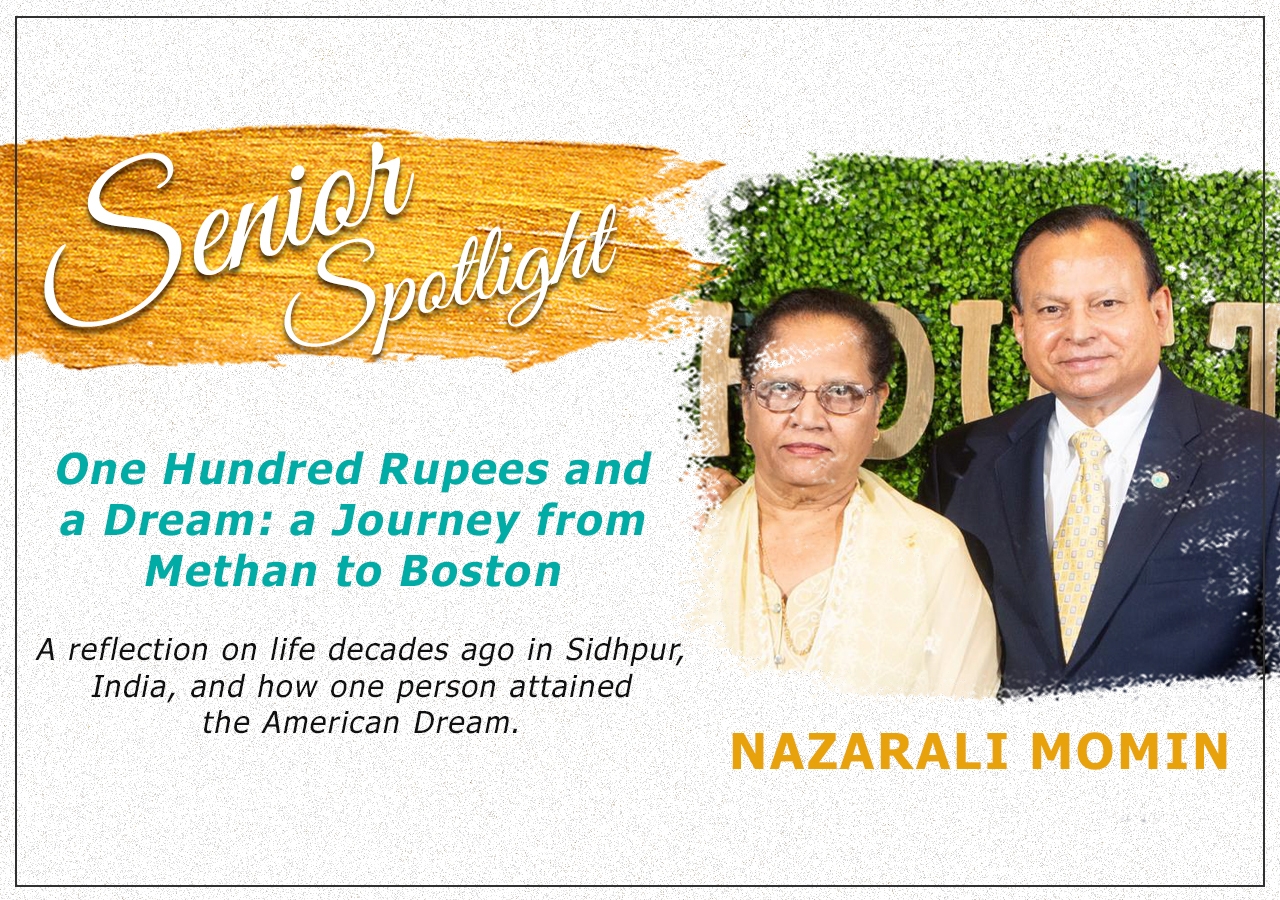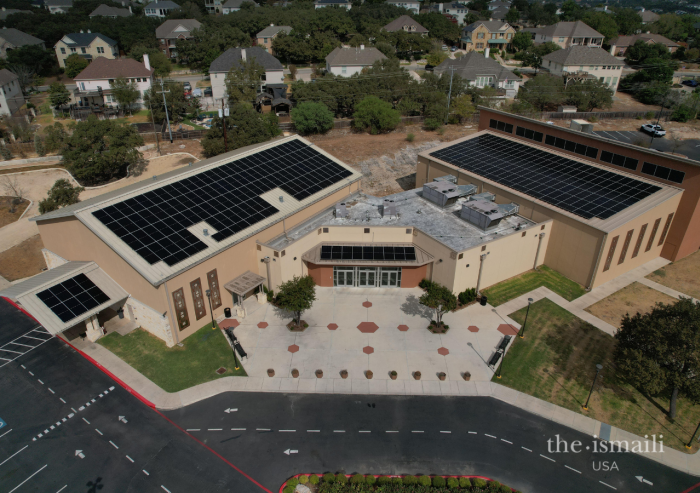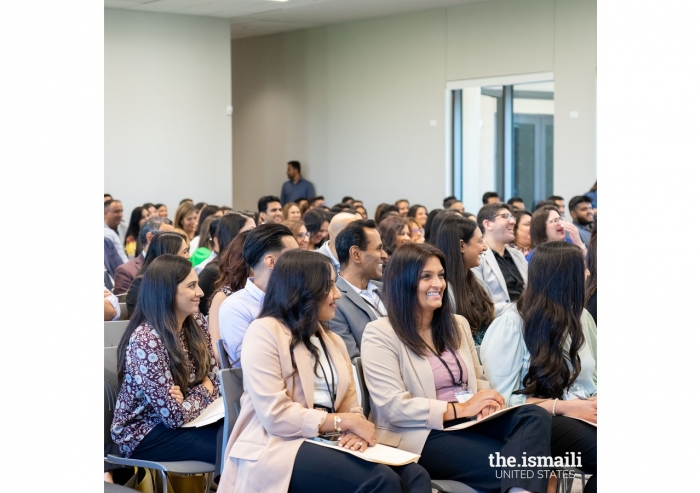Nazarali Momin grew up in Methan, surrounded by almost 15,000 Ismailis. His family would spend their days farming, while he would attend kindergarten under a tree. A school building finally opened up when he reached the second grade, where he stayed through seventh grade, balancing between farming and educating himself. As a 12-year-old, he moved to Bombay with his brother for the eighth grade and was the only child in his class who did not know his alphabet. Knowing he needed to persevere, Nazarali pushed himself to study and further his education. During this time, he resided in a nest atop a “tabela,” or stable, for buffalos. He and his brother stayed there for seven years.
Tree

In 1968, Nazarali obtained his undergraduate degree in chartered accountancy in Bombay but soon realized that his monthly salary was much less than the cost of traveling to and from work. Living on $1.50 a month, he knew that this was not a sustainable solution for himself and his family back home. The best option at the time seemed to be to go to the United States to further his education and for a better job. However, many questions soon arose with that plan...how would he get there, where would he stay, and how would he finance his education?
Fortunately, Nazarali connected with an Ismaili who lived in Boston at the time who agreed to sponsor him. Nazarali’s father borrowed 100 rupees from the villagers. He used 64 rupees to exchange for the $8 that was the maximum he was allowed to take with him out of the country, and 36 rupees to pay for parking at the airport. He borrowed a pair of shoes from his uncle, took his briefcase of legal documents, and boarded his flight for an adventure and a complete change of life.
Upon landing in Boston, Nazarali had a hard time adjusting to the environment. He had never seen snow before, nor did he have the appropriate attire. He eventually learned the language and his way around town. During the day, he would attend college to obtain his Bachelor of Science in Computer Science, and at night he would work the graveyard shift as a computer operator for a local bank. After completing his education in Boston, he moved to New York City.
In a town with less than 20 Ismailis, Nazarali and his colleagues would gather at an apartment in Manhattan every Saturday for Jamatkhana ceremonies. During the 1972 refugee crisis in Uganda, some 100 Jamati members joined them. They would all gather at the Prince George Hotel to pray. This was a turning point for the USA Jamat. Mawlana Hazar Imam appointed the first-ever National Council, where Nazarali was able to become involved.
The next year, Nazarali moved to Winston-Salem, North Carolina, for his work and to pursue a green card. There was only one Jamatkhana in the area—Spartanburg, South Carolina—and the family would drive 150 miles to attend once a month, on Chandraat, for seven years.
In 1981, Nazarali, along with his wife and two sons, moved to Houston. He began a convenience store business with his brother. As many more Jamati members moved to the United States, more local councils were formed. Nazarali became the President of the Southwest Economic Planning Board, a member of the National Economic Planning Board, a member of the Social Portfolio, Mukhi of Houston Headquarter Jamatkhana, and Fundraising Chairman for Houston Principal Jamatkhana.
Now, Nazarali has his sons, daughter, and all of his grandchildren living within 2-3 miles of him. At one point, he had four generations of his family together in the United States. Last year, he celebrated the Golden Jubilee of his arrival in the United States with his friends and family members. To this day, Nazarali remains involved in volunteer work within the community.
As the Momin family visited other sites in Boston last year, Nazarali noted to his grandchildren: “There are three things in life that brought me to where I am today, and I want you to always remember them. These things are education, Jamatkhana attendance/prayer, and volunteerism. If you stay true to yourself and always remember this, you can achieve anything you want.”










